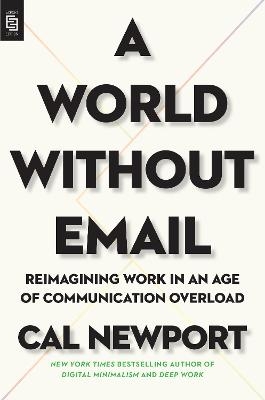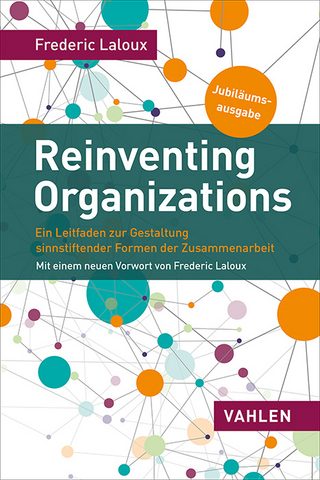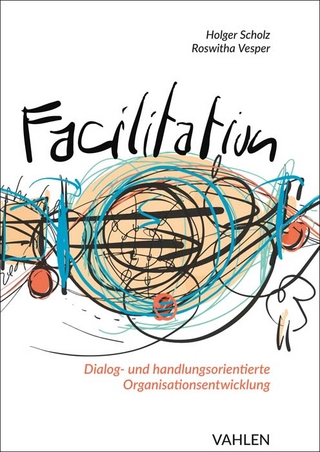
A World Without Email
Portfolio (Verlag)
978-0-593-33260-3 (ISBN)
From New York Times bestselling author Cal Newport comes a bold vision for liberating workers from the tyranny of the inbox--and unleashing a new era of productivity.
Modern knowledge workers communicate constantly. Their days are defined by a relentless barrage of incoming messages and back-and-forth digital conversations--a state of constant, anxious chatter in which nobody can disconnect, and so nobody has the cognitive bandwidth to perform substantive work. There was a time when tools like email felt cutting edge, but a thorough review of current evidence reveals that the "hyperactive hive mind" workflow they helped create has become a productivity disaster, reducing profitability and perhaps even slowing overall economic growth. Equally worrisome, it makes us miserable. Humans are simply not wired for constant digital communication.
We have become so used to an inbox-driven workday that it's hard to imagine alternatives. But they do exist. Drawing on years of investigative reporting, author and computer science professor Cal Newport makes the case that our current approach to work is broken, then lays out a series of principles and concrete instructions for fixing it. In A World without Email, he argues for a workplace in which clear processes--not haphazard messaging--define how tasks are identified, assigned and reviewed. Each person works on fewer things (but does them better), and aggressive investment in support reduces the ever-increasing burden of administrative tasks. Above all else, important communication is streamlined, and inboxes and chat channels are no longer central to how work unfolds.
The knowledge sector's evolution beyond the hyperactive hive mind is inevitable. The question is not whether a world without email is coming (it is), but whether you'll be ahead of this trend. If you're a CEO seeking a competitive edge, an entrepreneur convinced your productivity could be higher, or an employee exhausted by your inbox, A World Without Email will convince you that the time has come for bold changes, and will walk you through exactly how to make them happen.
Cal Newport is an associate professor of computer science at Georgetown University, where he specializes in the theory of distributed systems, as well as a New York Times bestselling author who writes for a broader audience about the intersection of technology and culture. He's the author of seven books, including Digital Minimalism and Deep Work, which have been published in over thirty languages. He's also a regular contributor on these topics to national publications such as The New Yorker, The New York Times, and Wired, and is a frequent guest on NPR. His blog, Study Hacks, which he's been publishing since 2007, attracts over three million visits a year. He lives with his wife and three sons in Takoma Park, Maryland.
Introduction
The Hyperactive Hive Mind
In late 2010, Nish Acharya arrived in Washington, DC, ready to work. President Barack Obama had appointed Nish to be his director of innovation and entrepreneurship and a senior adviser to the secretary of commerce. Nish was asked to coordinate with twenty-six different federal agencies and over five hundred universities to dispense $100 million in funding, meaning that he was about to become the prototypical DC power player: smartphone always in hand, messages flying back and forth at all hours. But then the network broke.
On a Tuesday morning, just a couple of months into his new role, Nish received an email from his CTO explaining that they had to temporarily shut down their office s network due to a computer virus. We all expected that this would be fixed in a couple of days, Nish told me when I later interviewed him about the incident. But this prediction proved wildly optimistic. The following week, an undersecretary of commerce convened a meeting. She explained that they suspected the virus infecting their network came from a foreign power, and that Homeland Security was recommending that the network stay down while they traced the attack. Just to be safe, they were also going to destroy all the computers, laptops, printers anything with a chip in the office.
One of the biggest impacts of this network shutdown was that the office lost the ability to send or receive emails. For security purposes, it was illegal for them to use personal email addresses to perform their government work, and bureaucratic hurdles kept them from setting up temporary accounts using other agencies networks. Nish and his team were effectively cut off from the frenetic ping-pong of digital chatter that defines most high-level work within the federal government. The blackout lasted six weeks. With a touch of gallows humor, they took to calling the fateful day when it all began Dark Tuesday.
Not surprisingly, the sudden and unexpected loss of email made certain parts of Nish s work quite hellish. Because the rest of the government continued to rely heavily on this tool, he often worried about missing important meetings or requests. There was an existing information pipeline, he explained, and I was out of the loop. Another hardship was logistics. Nish s job required him to set up many meetings, and this task was made substantially more annoying without the ability to coordinate over email.
Perhaps less expected, however, was that Nish s work didn t grind to a halt during these six weeks. He instead began to notice that he was actually getting better at his job. Lacking the ability to simply send a quick email when he had a question, he took to leaving his office to meet with people in person. Because these appointments were a pain to arrange, he scheduled longer blocks of time, allowing him to really get to know the people he was meeting and understand the nuances of their issues. As Nish explained, these extended sessions proved very valuable for a new political appointee trying to learn the subtle dynamics of the federal government.
The lack of an inbox to check between these meetings opened up cognitive downtime what Nish took to calling whitespace to dive more deeply into the research literature and legislation relevant to the topics handled by his office. This slower and more thoughtful approach to thinking yielded a pair of breakthrough ideas that ended up setting the agenda for Nish s agency for the entire year that followed. In the Washington politic environment, no one gives themselves that space, he told me. It s all neurotic looking at your phone, checking email it hurts ingenuity.
As I talked to Nish about Dark Tuesda
| Erscheinungsdatum | 03.03.2021 |
|---|---|
| Verlagsort | New York |
| Sprache | englisch |
| Maße | 140 x 208 mm |
| Gewicht | 289 g |
| Themenwelt | Wirtschaft ► Betriebswirtschaft / Management ► Planung / Organisation |
| Wirtschaft ► Betriebswirtschaft / Management ► Unternehmensführung / Management | |
| Schlagworte | Agile • Anxiety • Behavior • business • business books • Business Communication • Communication • communication skills • Community • confidence • Deep Work • digital minimalism • economy • Email • Entrepreneurship • gifts for men • graduation gifts • Happiness • Leadership • leadership books • Management • management books • MBA • Mental Health • Mindset • MONEY • Motivation • Motivational books • organization • Productivity • Psychology • psychology books • Self Help • self help books • self help books for women • self improvement books • Stress • Time Management • work from home |
| ISBN-10 | 0-593-33260-1 / 0593332601 |
| ISBN-13 | 978-0-593-33260-3 / 9780593332603 |
| Zustand | Neuware |
| Haben Sie eine Frage zum Produkt? |
aus dem Bereich


